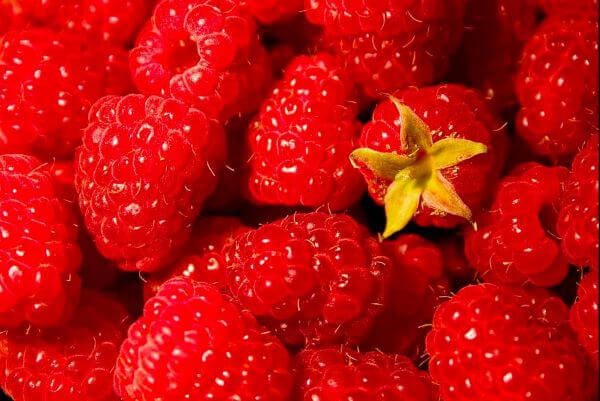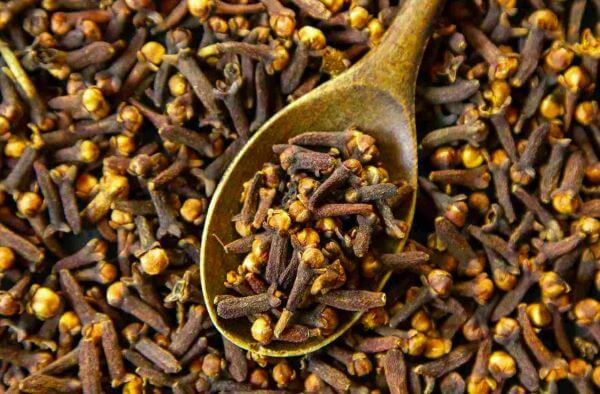Combat Cancer With Raspberries
- Collins k.k Boateng
- Jan 6
- 5 min read
How do you feel when you see people suffering from cancer of any kind? What is your reaction to the mere hearing of cancer? Do you ever think there is a way you can protect yourself against cancer? Or fight this deadly foe? Keep reading.
Cancer remains one of the most significant health challenges worldwide, making its prevention a crucial focus in health and nutrition discussions.
Among the many foods that can aid in this battle, raspberries stand out as a powerful yet often overlooked ally. These small, colorful berries are loaded with vital nutrients and compounds for fighting cancer.
In this article, we will explore how raspberries help in the fight against cancer, presenting their benefits in an accessible and thorough manner.
Article Focus
The Nutritional Powerhouse: What’s Inside a Raspberry?

Before we examine how raspberries help combat cancer, let’s examine their nutritional content. These berries are abundant in:
Vitamins: Particularly vitamin C, known for its strong antioxidant properties.
Minerals: Manganese, potassium, and magnesium, which contribute to overall well-being.
Fiber: Essential for digestion and promoting a healthy gut.
Phytonutrients: Including flavonoids, ellagic acid, and anthocyanins, which possess unique cancer-fighting abilities.
One cup of raspberries (approximately 123 grams) contains only 64 calories, making them a guilt-free addition to any diet.
The Science Behind Cancer Prevention
Cancer occurs when cells begin to grow uncontrollably, forming tumors that can spread to other areas of the body.
This process is often initiated by oxidative stress and inflammation, harming healthy cells. Raspberries contain compounds that counteract these damaging effects in various ways:
Antioxidants Neutralize Free Radicals
Free radicals are unstable molecules that can harm DNA, potentially resulting in cancer. Raspberries are rich in antioxidants like vitamin C and quercetin, which help neutralize these free radicals, lowering the risk of cellular damage.
Anti-inflammatory Effects
Chronic inflammation creates a favorable environment for cancer development. The ellagic acid and anthocyanins found in raspberries reduce inflammation, which can help prevent the initiation and progression of cancer.
Inhibition Of Cancer Cell Growth
Studies indicate that compounds in raspberries, such as ellagitannins, can slow down or halt the growth of cancer cells by disrupting their life cycle.
Support For Apoptosis (Cell Death)
Healthy cells naturally undergo apoptosis, a process where damaged cells self-destruct. Cancer cells, however, evade this process, allowing them to proliferate unchecked. Raspberries can help restore apoptosis, encouraging cancer cells to die off naturally.
Raspberries And Specific Types Of Cancer
Let’s take a closer look at how raspberries influence specific types of cancer:
Breast Cancer
Ellagic Acid: This compound, abundant in raspberries, has been shown to inhibit the growth of estrogen-sensitive breast cancer cells.
Hormonal Balance: Raspberries assist in regulating estrogen levels, which may lower the risk of hormone-related cancers.
Colorectal Cancer
High Fiber Content: Raspberry fibre supports a healthy gut and helps prevent the formation of polyps that can lead to colorectal cancer.
Gut Microbiome Support: Raspberries promote the growth of beneficial gut bacteria, which play a role in reducing cancer risk.
Lung Cancer
Flavonoids: These compounds help protect lung cells from damage caused by environmental toxins and smoking.
Detoxification: Raspberries support the body's detoxification processes, helping to lower carcinogen exposure.
Prostate Cancer
Anthocyanins: These natural pigments, which give raspberries their vibrant red hue, are associated with a decreased risk of prostate cancer.
Oxidative Stress Reduction: The antioxidants found in raspberries help protect prostate cells from oxidative damage.
Skin Cancer
Topical Benefits: Raspberry extracts are commonly included in skincare products due to their UV-protective properties.
DNA Protection: The antioxidants in raspberries help shield skin cells from DNA damage caused by UV exposure.
How To Include Raspberries In Your Diet

Raspberries are versatile and can be enjoyed in many different ways. Here are some suggestions:
Fresh and Raw: Incorporate raspberries into your breakfast cereal, yogurt, or oatmeal for a nutritious morning boost.
Smoothies: Blend raspberries with other fruits, spinach, and almond milk to create a refreshing, cancer-fighting smoothie.
Salads: Add raspberries to green salads for a pop of color and flavor.
Desserts: Use raspberries as a topping for desserts like cheesecake or panna cotta for a healthier option.
Snacks: Enjoy them straight from the container as a quick, healthy snack.
Tips For Maximizing The Benefits Of Raspberries
To benefit from raspberries you need to go the right way. Please read below to know how you can consume raspberries to get their benefits in battling cancer.
Choose Organic: Opt for organic raspberries to avoid pesticides and ensure you receive the full health benefits.
Store Properly: Refrigerate raspberries and consume them within a few days to maintain their nutrients.
Freeze for Later: Frozen raspberries keep their nutritional value and can be used throughout the year in smoothies and recipes.
Combine with Other Superfoods: Pair raspberries with nuts, dark chocolate, or green tea to enhance their cancer-fighting properties.
Scientific Studies Supporting Raspberries’ Cancer-Fighting Properties
Many studies emphasize the anti-cancer potential of raspberries:
A Study on Ellagic Acid: A publication in the journal Cancer Research revealed that ellagic acid in raspberries can inhibit cancer cell growth and encourage apoptosis.
Fiber and Colorectal Cancer: A study published in The American Journal of Clinical Nutrition found that a high dietary fiber intake is associated with a lower risk of colorectal cancer.
Flavonoids and Lung Cancer: Research featured in The Journal of Nutrition indicated that foods rich in flavonoids, such as raspberries, can help decrease the risk of lung cancer.
Raspberries As Part Of A Cancer-Fighting Lifestyle
Raspberries are a potent ally in cancer prevention, especially when paired with other healthy lifestyle choices:
Balanced Diet: Incorporate a range of fruits, vegetables, whole grains, and lean proteins.
Regular Exercise: Engaging in physical activity enhances immunity and lowers inflammation.
Avoid Smoking and Excess Alcohol: These behaviors heighten oxidative stress and increase cancer risk.
Regular Checkups: Timely detection is crucial for effectively managing cancer.
Which Fruits Are Best For Cancer Patients?
Berries (blueberries, raspberries, strawberries) are rich in antioxidants and flavonoids, helping reduce cancer cell growth and inflammation.
Citrus fruits (oranges, grapefruits, lemons) high in vitamin C support immune function and enhance chemotherapy effectiveness. Pomegranates, rich in ellagic acid, have anti-angiogenic properties, inhibiting cancer cell proliferation and tumor formation.
Frequently Asked Questions
Which foods can help fight cancer naturally?
Consume antioxidant-rich foods like berries, leafy greens, and cruciferous vegetables to inhibit cancer cell growth. Omega-3 fatty acids in fatty fish, nuts, and seeds induce apoptosis (cell death), while polyphenols in green tea and dark chocolate halt cancer progression.
Additionally, turmeric's curcumin, ginger's gingerol, and garlic's allicin compounds have potent anti-cancer properties, supporting your body's natural defenses.
Summary
Raspberries are not just a tasty fruit; they are a formidable partner in the battle against cancer. Rich in antioxidants, anti-inflammatory properties, and fiber, they help fight cancer at every stage—from prevention to slowing its advancement.
Adding raspberries to your diet and embracing a healthy lifestyle can significantly lower your cancer risk while savoring their delightful flavor.
Make raspberries a part of your meals, share their advantages with family and friends, and take a proactive step toward a healthier, cancer-free future.



Comments